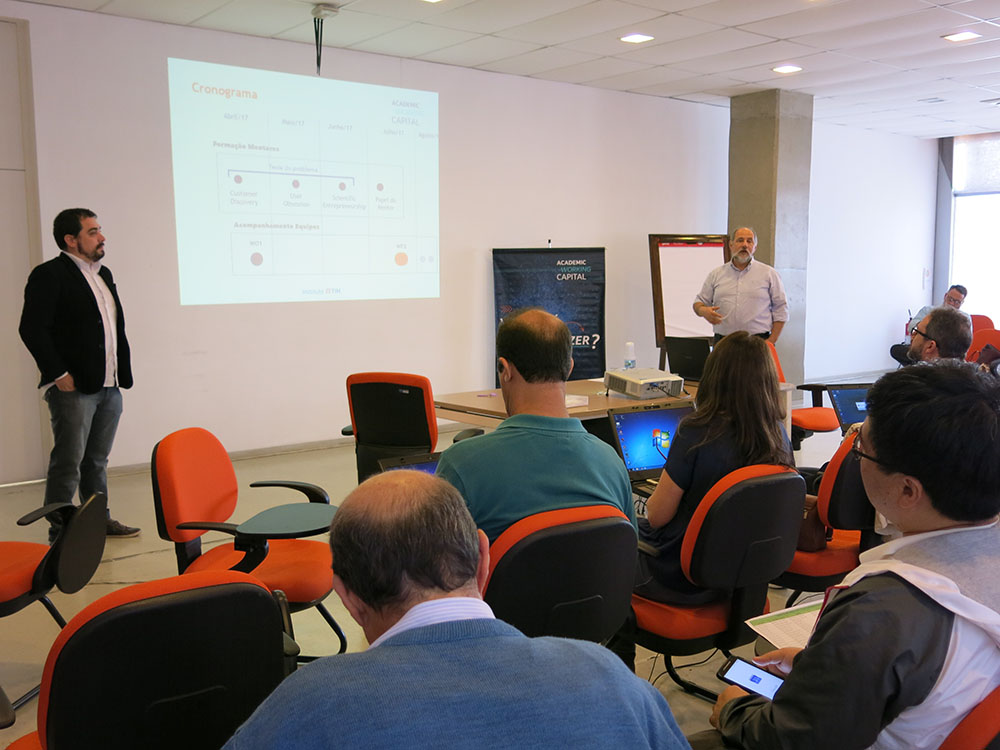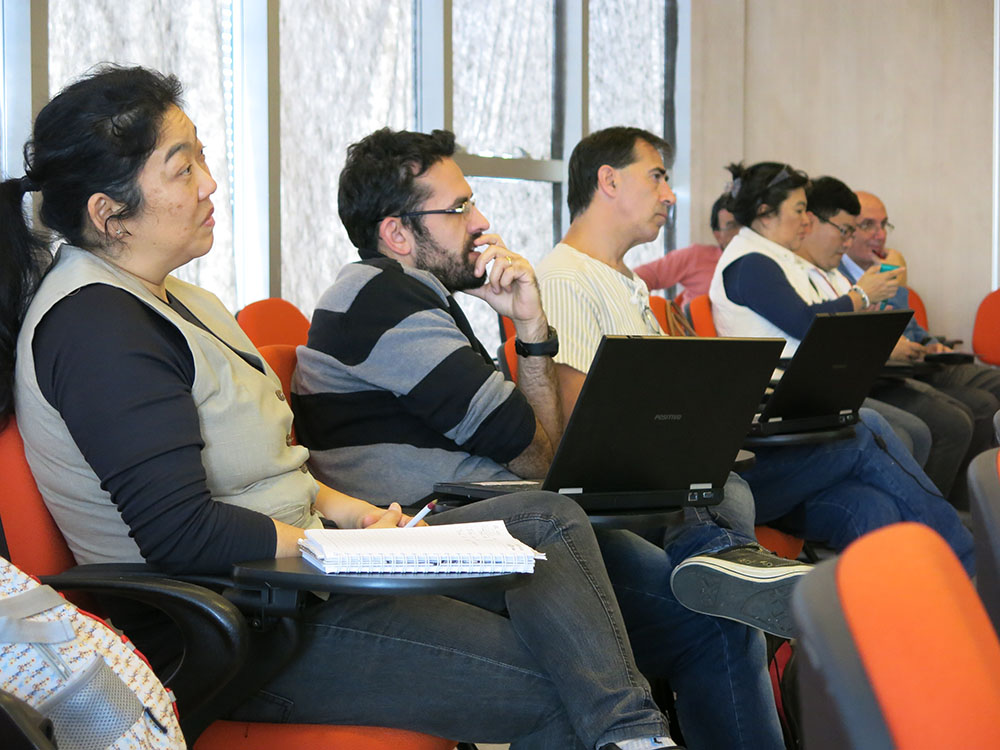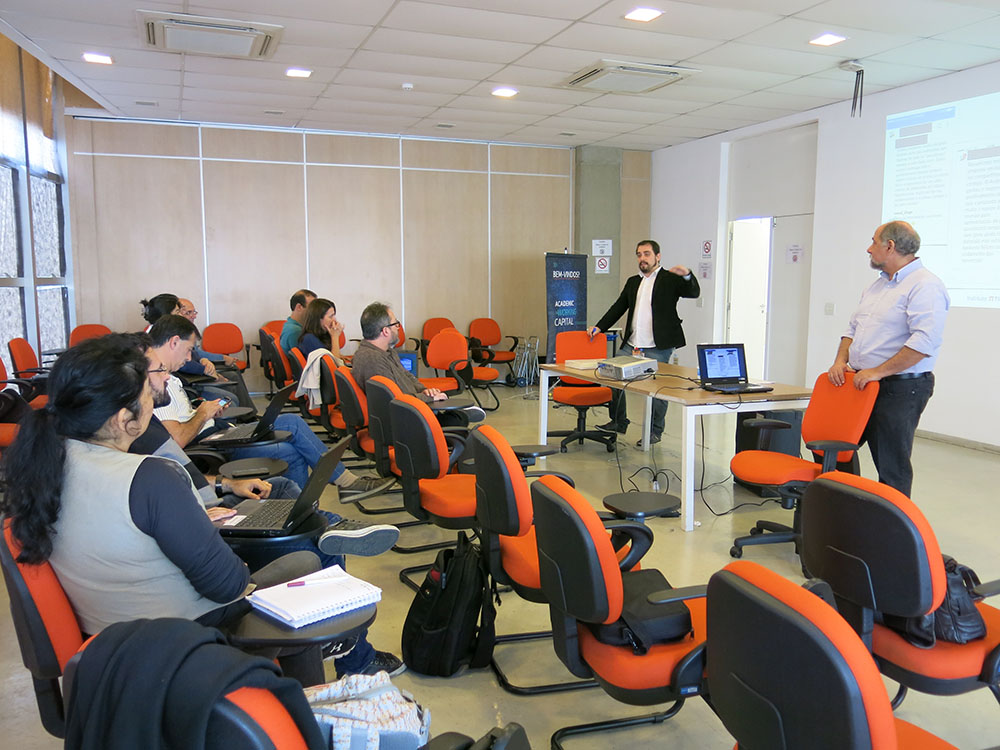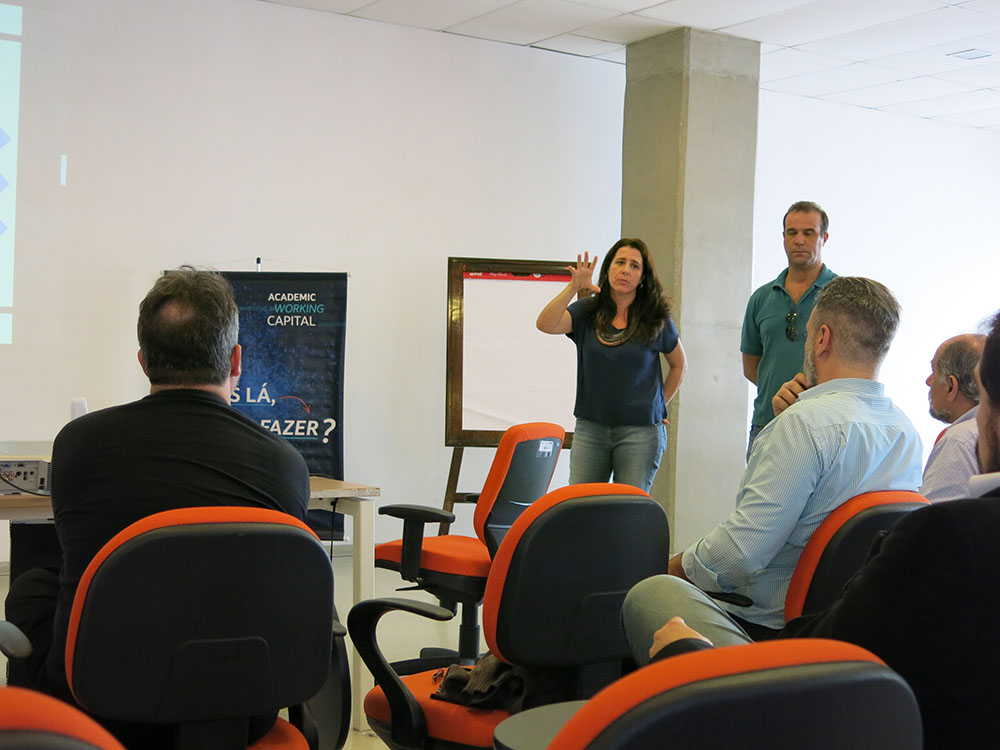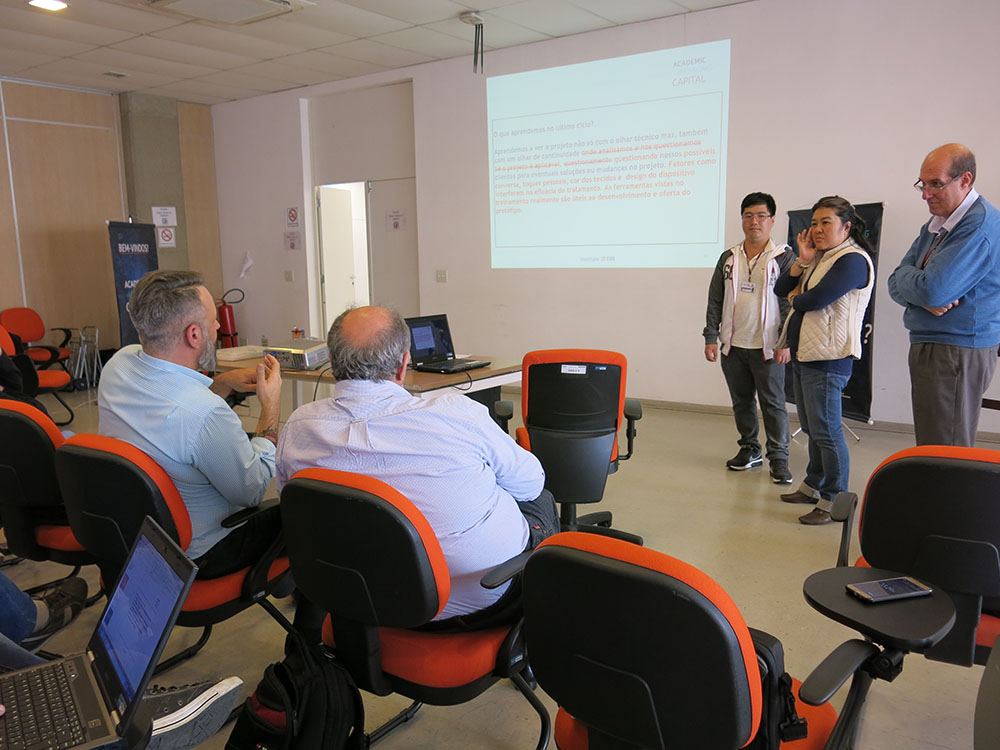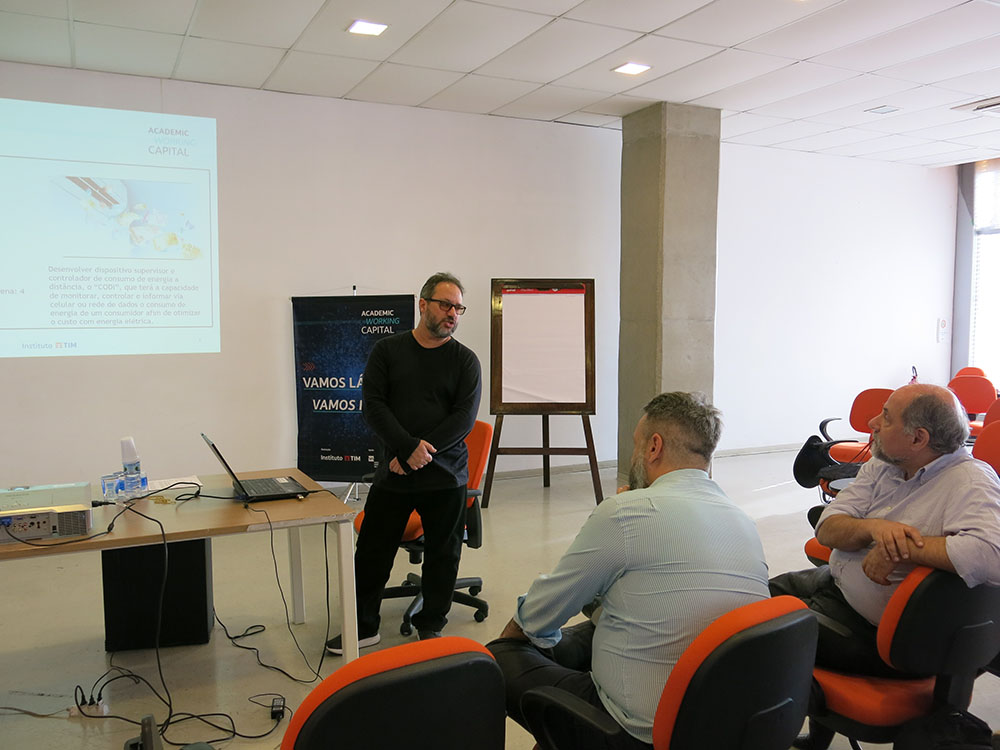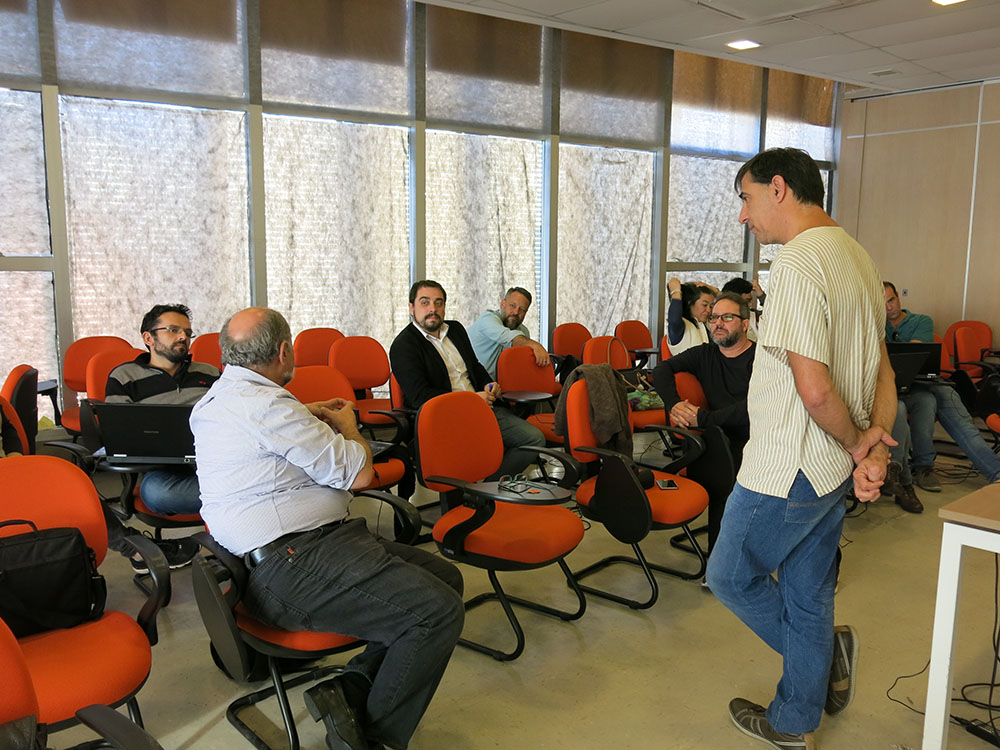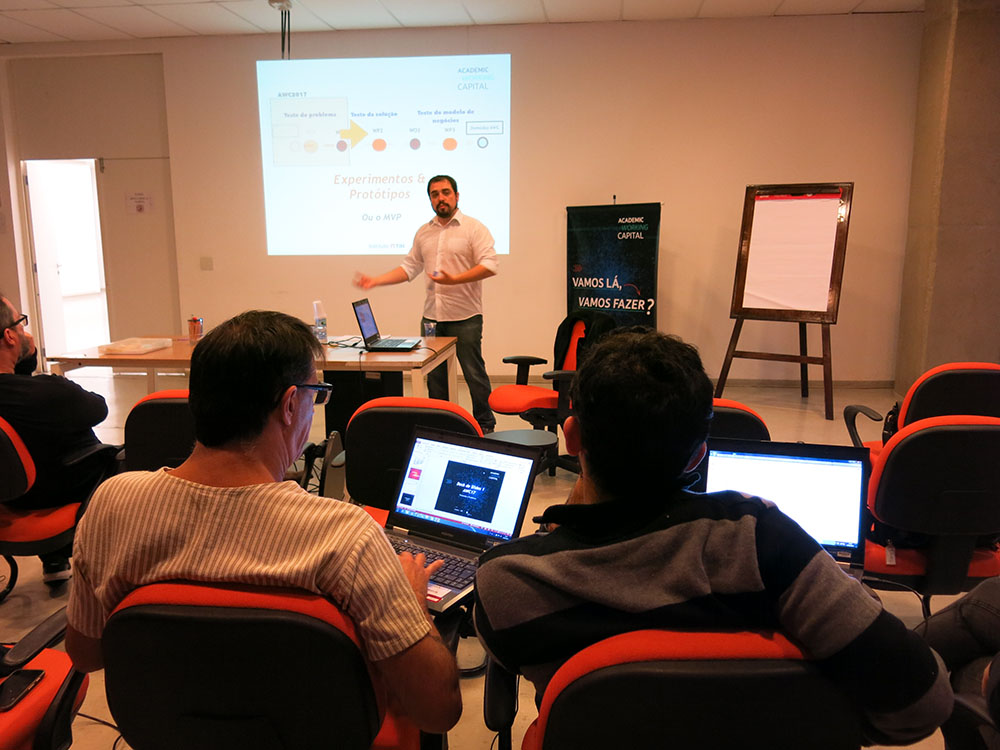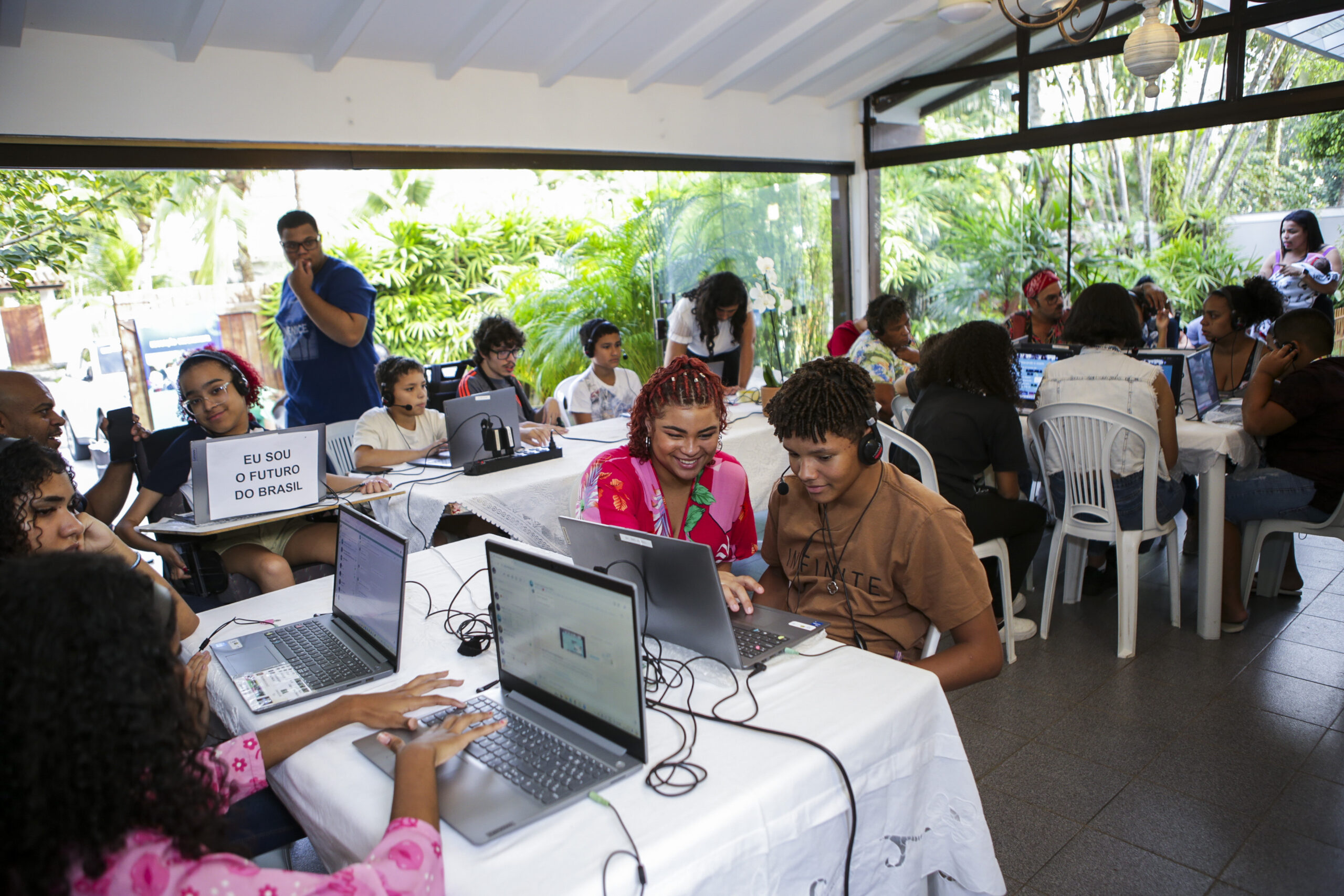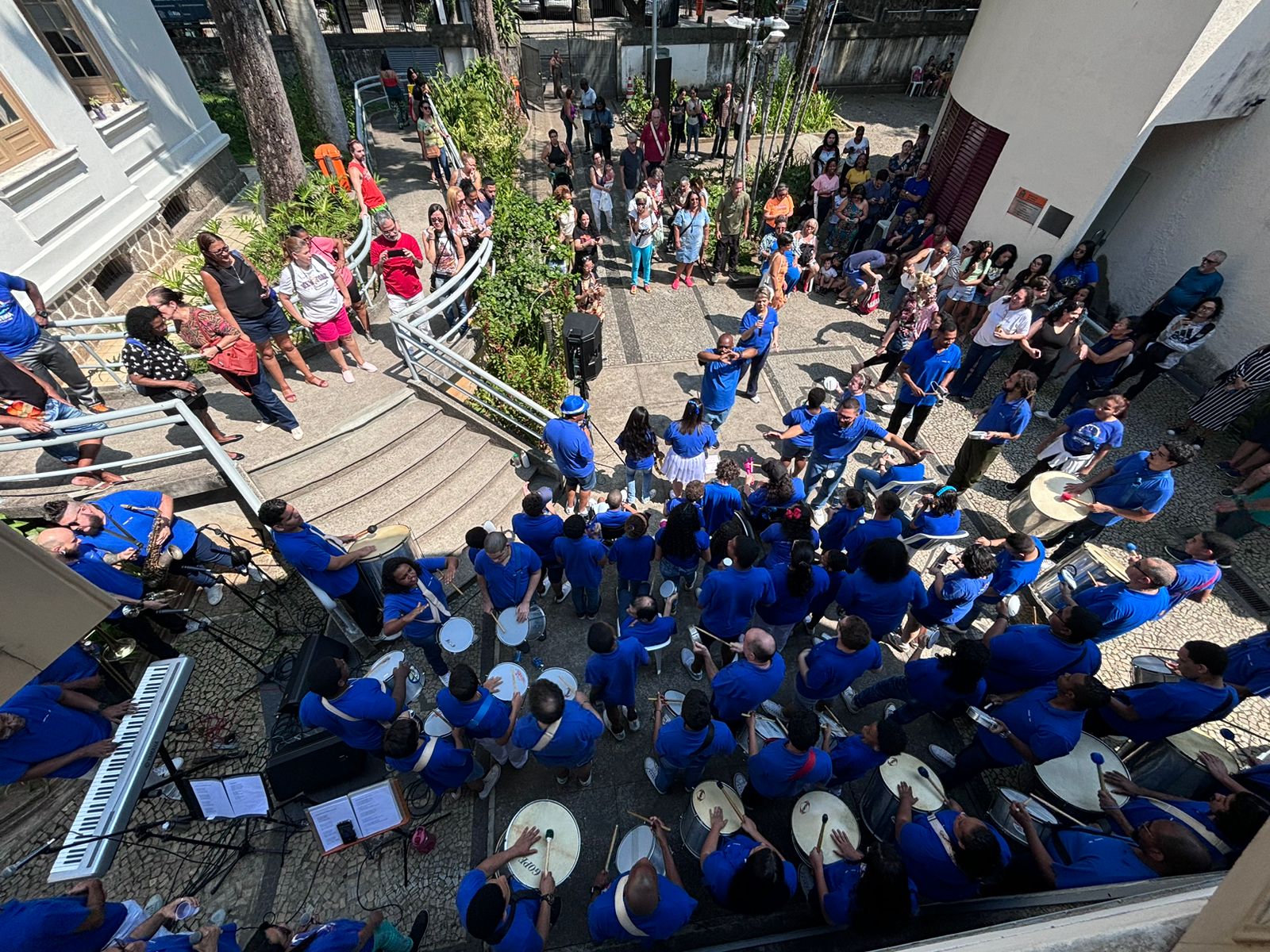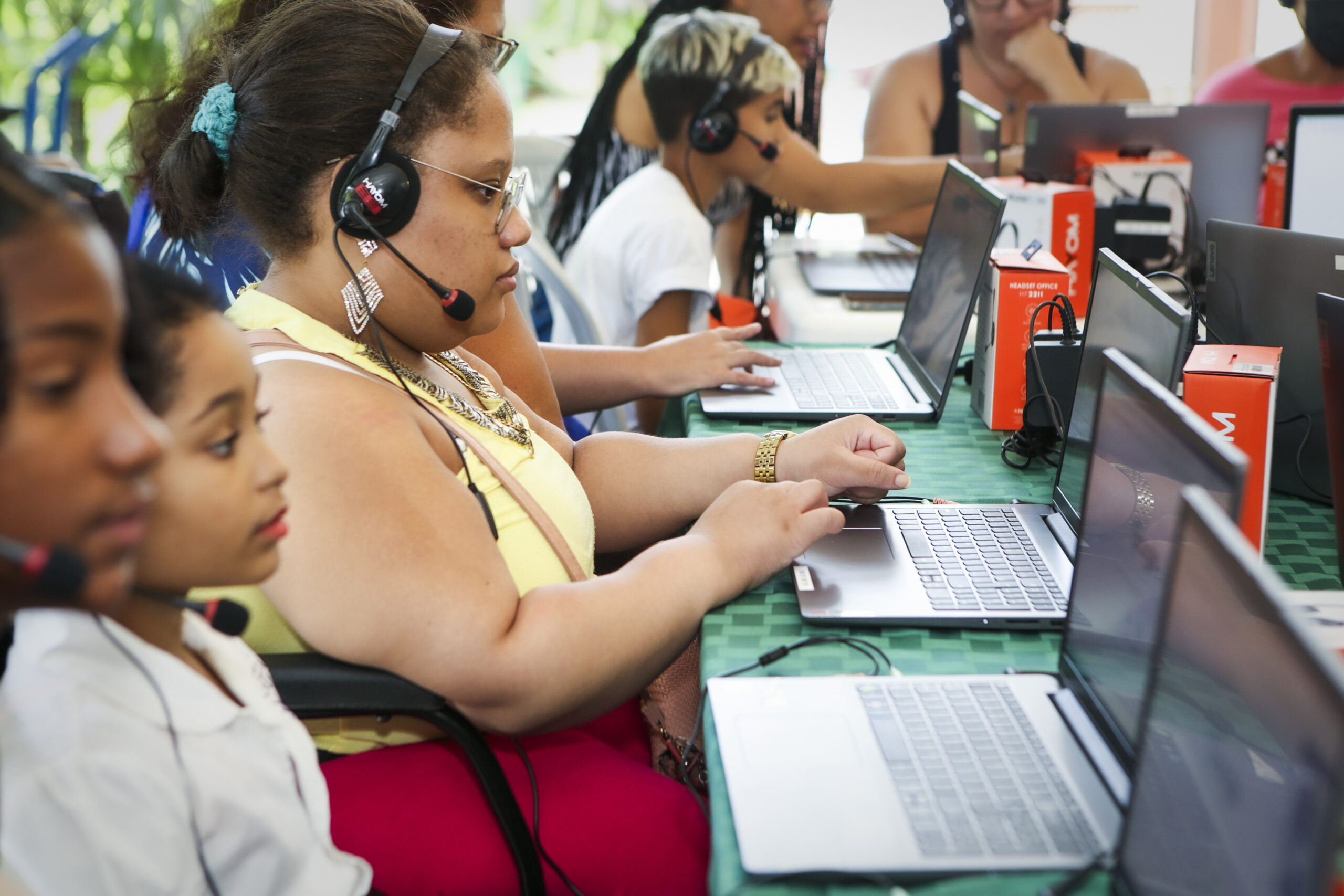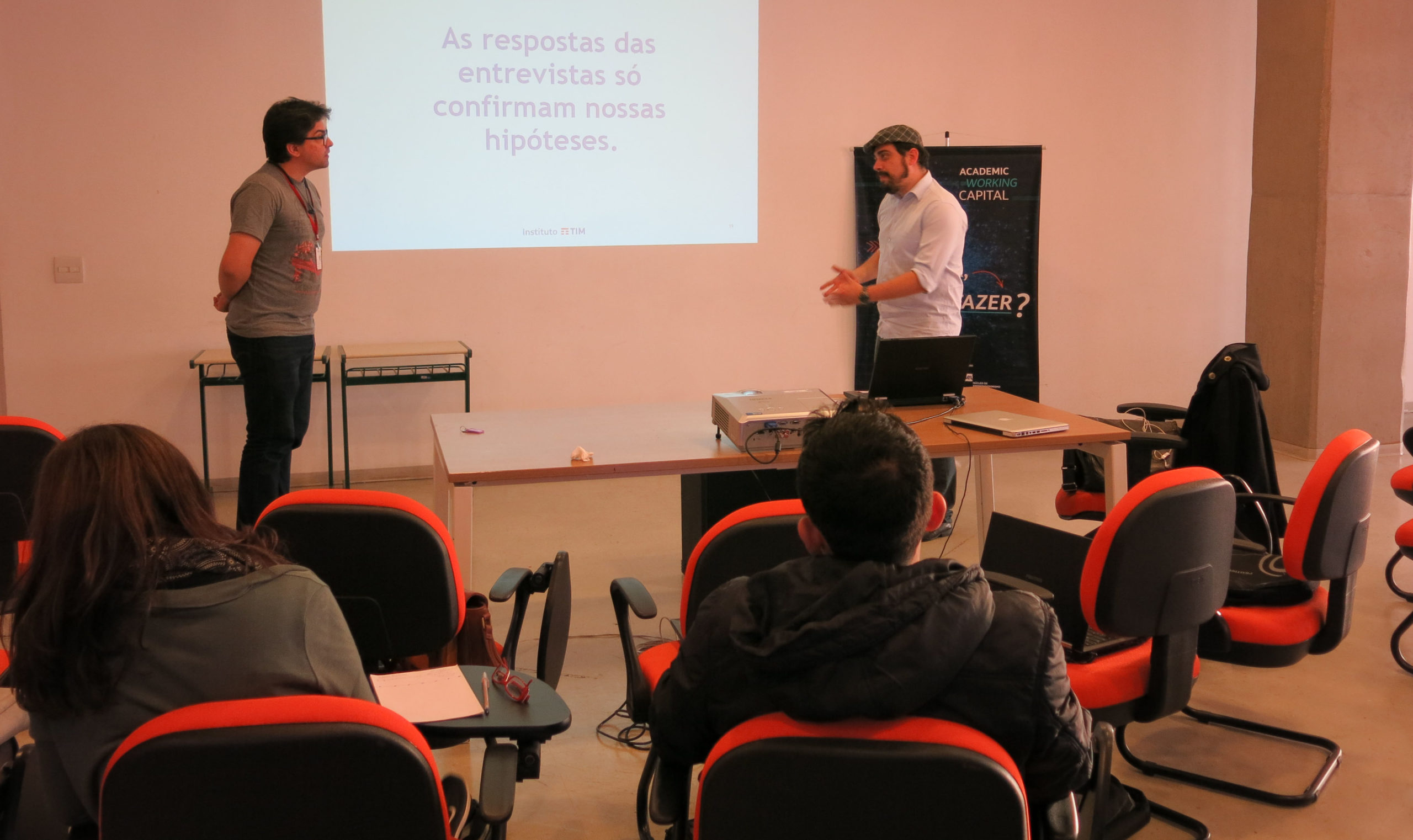
On the afternoon of June 27, the 3rd training on the approach of the Academic Working Capital for teachers of State Technical Schools (Etecs) of São Paulo was held. The meeting took place at the Training Center of Paula Souza Center, a partner of Instituto TIM in this initiative, and it was attended by teachers from Etec Aristóteles Ferreira, Santos; Etec Bento Quirino, Campinas; Etecs Getúlio Vargas and Jorge Street, São Paulo; Etec Júlio de Mesquita, Santo André; and Etec Rosa Perrone Scavone, Itatiba.
Learn about the first and second AWC training sections for Etec teachers
The main subject of the 3rd training section was, once again, the business model that teachers have developed since the first meeting – as well as their students (besides the 25 groups of universities, AWC 2017 is attended by 7 groups of Etecs), the educators were invited to create a solution that can become an innovative and salable product. At first, AWC coordinators Marcos Barretto and Diogo Dutra talked about AWC’s backstage, the current stage of the program, and showed examples of student’s sentences and feedback to showcase student’s breakthroughs.
“What I notice about them is maturity,” Regina Kawakami said, teacher at Etec Bento Quirino, when talking about the Car Safety System project. “They have been very frustrated. Sometimes, they feel discouraged, but then they feel excited about the project again,” she concluded. “They are excited. You see the change in the profile; they understand that the process is much bigger than that, and they go after it,” Adriana Nakatani adds, teacher at Etec Júlio Mesquita and one of the advisers of the Touring Baby project.
Visit the official Academic Working Capital website and learn more
Teachers commented that the training sections bring out new perspectives and that everyone advances and learns together. “There is no reason why you cannot put together an Etec student with a 5th year Engineering student. We hit and they respond,” Marcos Barretto joked. All groups have done over 60 interviews, and out of a total of 32 teams, 27 are going to the test phase of the solution – the others will continue to do interviews to define the problem that their solution will solve (test phase of the problem).
In a second moment, the groups of teachers showed the slide decks that they set up for their solutions and received feedback from Marcos, Diogo and Raul Javales, AWC trainer and professor of Economics at Getulio Vargas Foundation. The groups talked about their products, their interviews, the personas they created and they discussed success stories. This activity – known as flipped classroom – is very common in the AWC workshops, and it has helped teachers to better understand the process their students are going through.
The training continued with a lecture by Diogo on “how to think market in startup?”, which explored concepts such as beachhead market and stakeholders map, as well as tools that can be used to understand the market. Afterwards, Diogo and Marcos talked about the decision to keep or pivot (go/no go), the moment when the entrepreneur decides whether to insist on the idea or to change directions. “Our culture has a side of hiding flaws or going all the way pretending that it did not happen. That’s why no go is highly valued,” Diogo said.
The day ended with an explanation of the next steps in the program and training. The next and last meeting will take place on July 6, also at Paula Souza Center.
